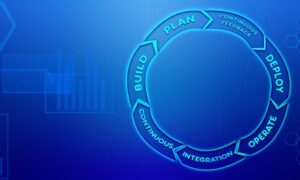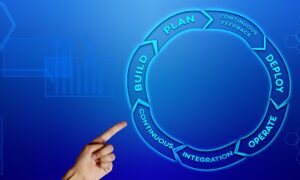Are you a developer venturing into the realm of next-generation approaches? Brace yourself for an exhilarating journey filled with cutting-edge technology and groundbreaking innovation. But amidst the excitement, be prepared to confront a plethora of challenges that can leave even the most seasoned developers perplexed. In this blog post, we’ll dissect the intricacies and unravel the obstacles faced by developers when working with next-gen approaches. Get ready to explore solutions to these hurdles as we embark on this thrilling journey together.
Introduction to Next-Gen Approaches
Technological advancements have ushered in new approaches for developers to employ when constructing software. However, these next-gen approaches come with their own set of challenges that must be surmounted. In this blog article, we’ll acquaint you with some of the most common challenges encountered by developers working with next-gen approaches.
One prominent challenge faced by developers is the demand for enhanced technical proficiency. Next-gen approaches frequently necessitate a deeper understanding of the underlying technology to harness them effectively. Furthermore, developers must possess the ability to troubleshoot issues that may arise during development.
Another formidable challenge is the dearth of comprehensive documentation and available resources for next-gen approaches. This scarcity can hinder developers’ initial foray into these novel technologies and make problem-solving during development a formidable task.
Next-gen approaches often entail greater complexity compared to traditional methodologies. This complexity can render development time-consuming and arduous. Developers must meticulously plan and design their software to avoid errors and ensure compatibility with other software products.
Challenges Encountered in Next-Gen Development
Developers face numerous challenges when working with next-gen approaches. Some of the most prevalent ones include:
Lack of Familiarity with New Technologies and Frameworks: Embracing unfamiliar technologies and frameworks can present a steep learning curve, especially for developers accustomed to traditional approaches.
Limited Resources and Documentation: New technologies and frameworks often lack comprehensive resources and documentation, hampering developers’ ability to find solutions to their queries or address encountered challenges.
Compatibility Issues: Integrating new approaches with existing systems can lead to compatibility problems, particularly when bridging the gap between novel technologies and legacy systems.
Performance Concerns: New technologies may not always match the performance levels of their older counterparts, leading to frustration among developers accustomed to more efficient tools.
Understanding the Benefits of Next-Gen Approaches
As the name suggests, next-gen approaches revolve around leveraging the latest technology and trends to enhance business operations. This entails staying abreast of cutting-edge tools and incorporating them to maintain a competitive edge. While it poses challenges, it also bestows several advantages that can propel your business towards growth and success.
Key benefits of next-gen approaches encompass:
Enhanced Efficiency: By harnessing state-of-the-art technology, you can streamline processes and boost efficiency, resulting in time and cost savings, as well as improved customer satisfaction.
Elevated Quality: Next-gen approaches often lead to superior quality outcomes by enabling the utilization of the best tools and practices available. This, in turn, enhances the customer experience and fosters loyalty.
Greater Innovation: Staying at the technological forefront encourages innovation in business approaches, providing a competitive edge and attracting new customers.
Enhanced Team Collaboration: Next-gen approaches promote collaboration within teams, fostering improved communication that leads to better results and a more positive working environment.
How to Overcome These Challenges
To surmount these challenges, developers must possess proficiency in various programming languages, grasp the utilization of new development tools, and be well-versed in diverse development frameworks. Additionally, strong communication skills and effective collaboration within the development team are crucial.
Effective Software Development Tips
The surge of next-gen approaches has ushered in numerous challenges for developers. Here are some tips to conquer these challenges and facilitate efficient software development:
Comprehend the Business Need: Understanding the software’s intended purpose within the business is paramount. This knowledge guides the selection of appropriate technology and approaches.
Establish Clear Objectives: Define precise objectives for the software before commencing development to prevent scope creep and maintain project focus.
Efficient Planning and Execution: Next-gen approaches often necessitate meticulous planning and execution. Allocate sufficient time for both project phases.
Adaptability: Be prepared for evolving requirements, as next-gen approaches often entail rapidly changing dynamics. Adapt your plans as needed to accommodate these changes.
Effective Communication: Transparent communication is essential when working with next-gen approaches. Keep all stakeholders informed about progress and changes to maintain alignment.
Leverage Existing Platforms: Investigate existing software and frameworks that could streamline your development process, saving time and resources.
Thorough Testing: Comprehensive testing at every project phase is indispensable for ensuring the quality of software developed using next-gen approaches.
Tools and Technologies in Next-Gen Approaches
Next-generation development approaches, including microservices, containers, and cloud-native applications, introduce fresh challenges for developers. While these technologies offer greater agility and scalability, they also necessitate new skills and knowledge. In this article, we delve into the challenges faced by developers when working with next-gen approaches.
Developers encounter the challenge of learning new tools and technologies, with microservices and container-based applications typically involving a diverse set of technologies like Docker, Kubernetes, and Mesos. While these tools offer immense benefits, they can be complex to grasp, requiring developers to acquire a deep understanding.
Adopting new development paradigms is another challenge. Next-gen approaches often demand a shift in mindset regarding application design and architecture, necessitating the ability to think in terms of microservices or containers rather than traditional monolithic applications.
Next-gen approaches also entail embracing new deployment and operations practices, such as continuous delivery and DevOps. Developers must understand these practices to use them effectively.
Effective debugging of microservices or container-based applications poses yet another challenge. Debugging modern applications requires a different approach due to their intricate architectures, making problem identification and resolution more challenging.
Conclusion
Next-gen approaches usher in a new era of development but also bring forth their unique challenges. Developers must acquire proficiency in new tools and technologies, adapt to novel development paradigms, embrace updated deployment and operations practices, and become adept at debugging modern applications. These challenges, though daunting, equip developers with the skills needed to create more efficient and effective software in our rapidly evolving digital landscape.



































